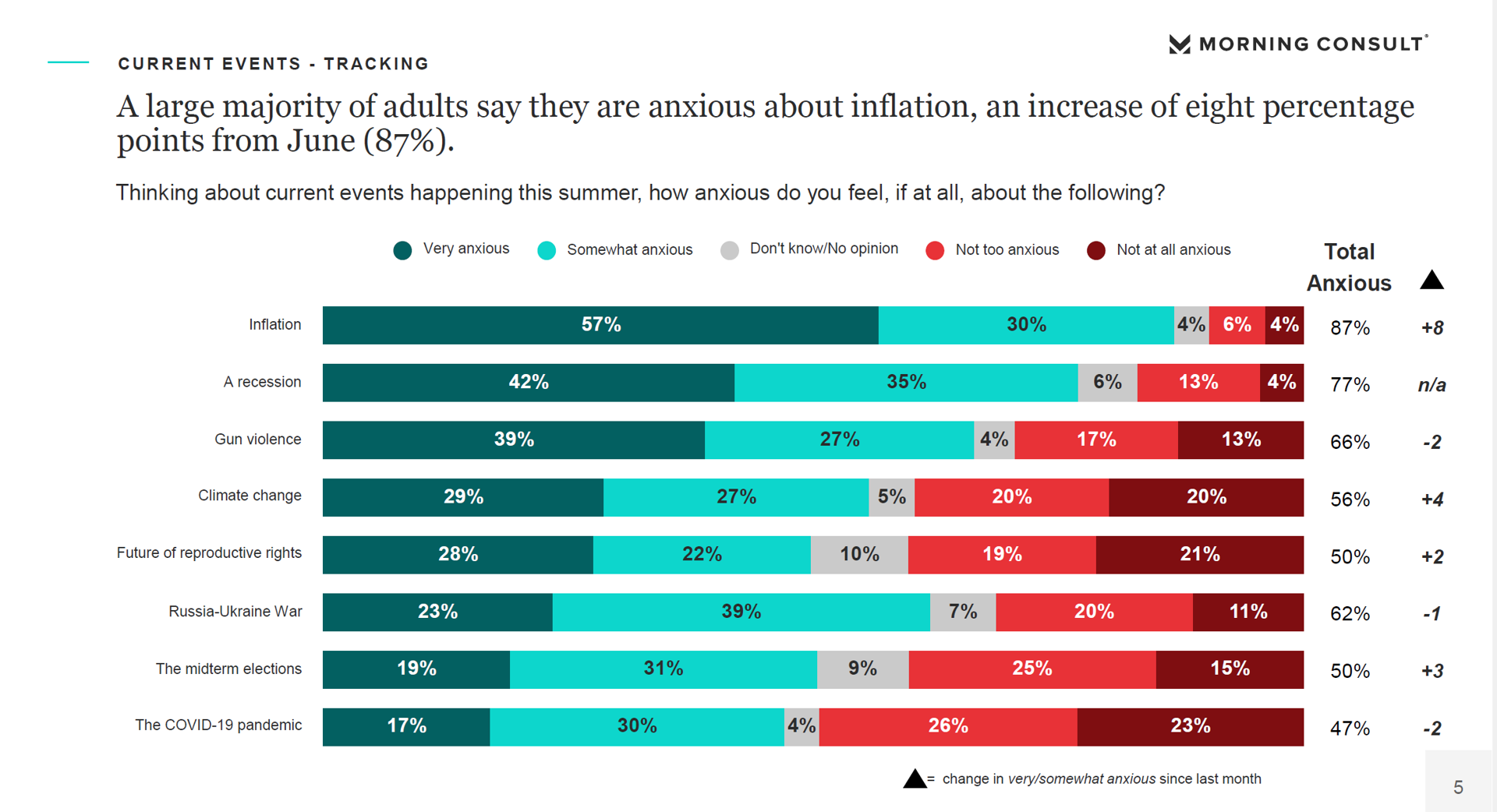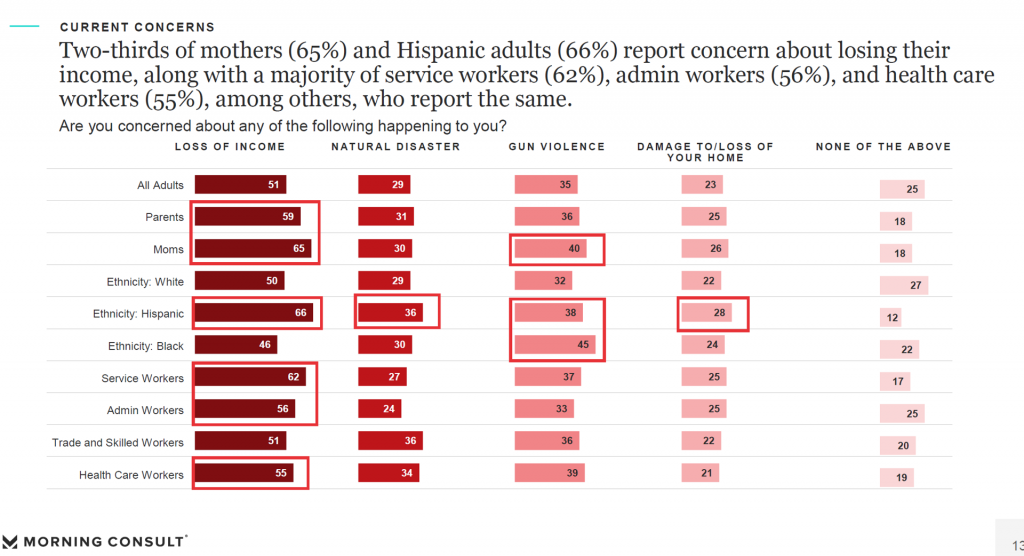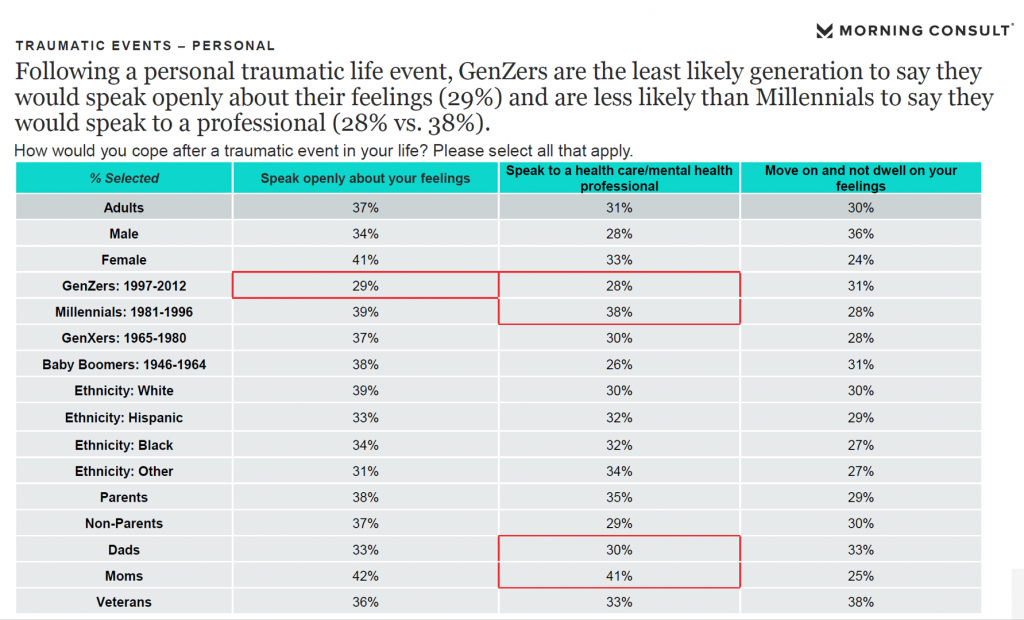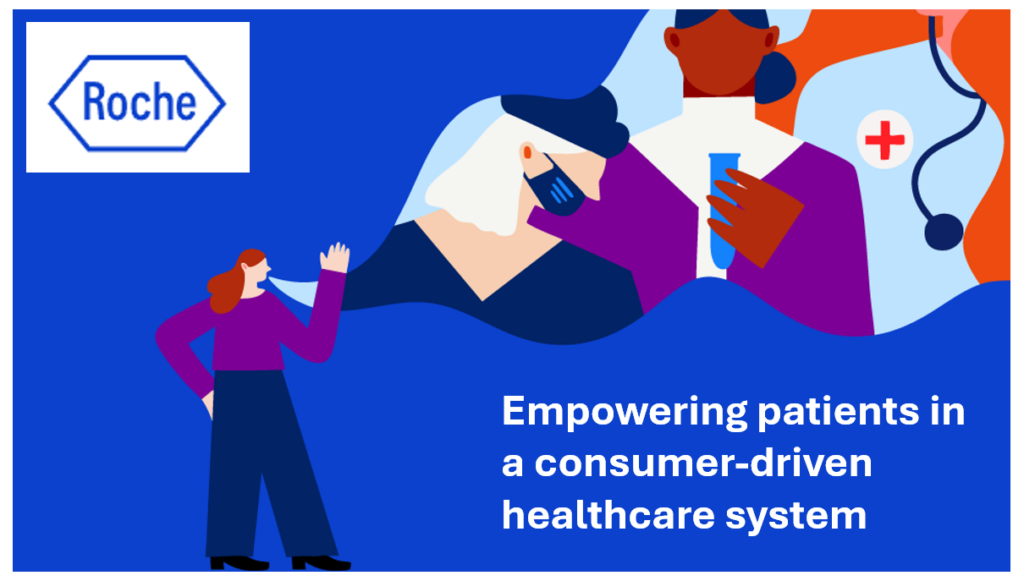Inflation and the fear of economic recession were the top two causes of anxiety in America, followed by gun violence, in June 2022.

Moms and Hispanic adults, in particular, were worried about losing income and of gun violence, discovered in the Healthy Minds Monthly Poll for July 2022 from the American Psychiatric Association (APA) and Morning Consult.
For some context about these findings, note that this survey was fielded between June 18 and 20, 2022; that was,
- 24 days after the Robb Elementary School shooting in Uvalde, Texas
- Four days before the Supreme Court overturned Roe vs. Wade (the Dodd ruling), and
- Two weeks before the Highland Park mass shooting that occurred on July 4th.

Losing income caused anxiety for 51% of all U.S. adults, but more likely for Moms (65%), Hispanic people (66%), service workers (62%), parents (59%), and health care workers (55%), and by generation, more likely younger people in Gen Z and Millennial groups.
Gun violence was a concern for 35% of all U.S. adults, more likely a stressor for Black and Hispanic people (45% and 38%, respectively), for Moms (40%), and for health care workers (39%).
Anxiety about inflation rose by 8 percentage points across all U.S. adults in June. For a further look at inflation’s anxiety-impacts by demographics, this chart shows growing financial stress due to inflation across all groups surveyed except among Black adults. The largest percent increase for inflation anxiety was found for Hispanic adults, followed by women (up 10 percentage points), and Democrats (up 9 percentage points).
Health Populi’s Hot Points: Anxiety about money and guns ratcheted up as stress due to the COVID-19 pandemic fell, most markedly among Black people over the month.
“Healthy Minds Monthly is showing us that the economy seems to have supplanted COVID as a major factor in American’s day-to-day anxiety,” APA President Rebecca Brendel, M.D., J.D. was quoted in the Poll’s press release. “This context is important for psychiatrists and other mental health clinicians to take into account as we see our patients, especially as it pertains to affordability and availability of care.”
I’ve bolded Dr. Brendel’s use of the phrase “affordability and availability of care” as more women will be assessing their access to preventive care and reproductive services following the SCOTUS Dodd ruling which has already begun to re-shape the supply of health care services in several U.S. states.

In this July Healthy Minds Poll, the APA asked people about their openness to speaking with a health care or mental health professional following a personal traumatic life event.
The second column here tells us that overall, 31% of U.S. adults would seek professional help to cope with a traumatic event. Most likely to do so: Moms, 41% of whom would speak to a health professional following a traumatic life event.
Many people in the U.S. have also been shocked and saddened by the assassination of Japan’s former Prime Minister Shinzo Abe, perpetrated by a person using a handmade, homemade gun. This, in a nation where gun violence has been extremely rare: in 2019, there were only nine deaths from firearms, based on World Health Organization data.
As COVID-19 both caused and revealed anxiety and stress among U.S. health citizens, it is remarkable to see only a minority of people say they would follow up a traumatic experience by speaking with a health care or mental health professional. We’ve so far to go to continue to de-stigmatize mental health in America, and expand services to people who need and want to access them. Mind this gap: as financial stress and anxiety due to gun violence continue to pervade peoples’ daily lives in America, the need for accessible, affordable, quality mental health services will only grow.




 I was invited to be a Judge for the upcoming
I was invited to be a Judge for the upcoming  Thank you Team Roche for inviting me to brainstorm patients as health citizens, consumers, payers, and voters
Thank you Team Roche for inviting me to brainstorm patients as health citizens, consumers, payers, and voters  For the past 15 years,
For the past 15 years,